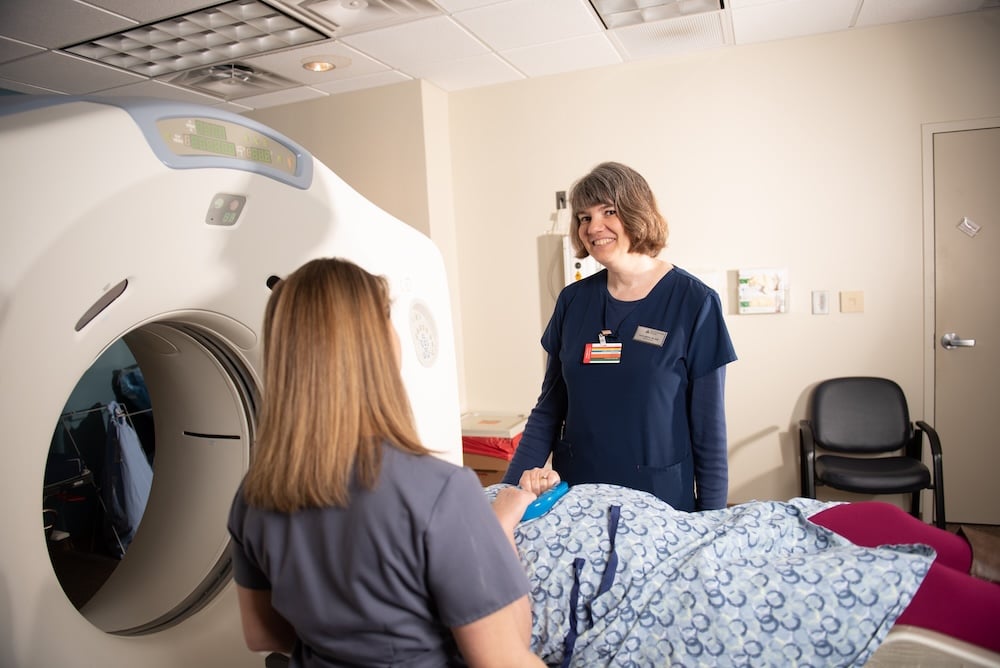
Even though colorectal cancer is commonly diagnosed in both men and women, it is highly treatable if caught early. Fortunately, several treatment options are available, with new treatments becoming available as clinical research trials offer new therapies. One thing that hasn’t changed over time is surgery as part of the colon and rectal cancer treatment process.
What you may not realize is that surgery isn’t always a part of the colon cancer treatment process. While it is the most common treatment for colorectal cancer, it may not be the best choice for everyone. Depending on the individual's unique situation, non-invasive options like radiation therapy may be a better alternative. What determines whether surgery will be part of your treatment plan? Read on to learn more.
The Traditional Role of Surgery in Colorectal Cancer
Surgery is often included in the treatment of all types of cancer to remove as much of the tumor as possible. For colorectal surgery, this can range from a small polypectomy during a colonoscopy to a more significant procedure that removes a portion of the colon where there is cancer.
The type of surgery a patient receives depends on various factors, such as where the cancer is located and its stage. Common surgery options include polypectomy and colectomy. A polypectomy removes polyps, which can often be done during a colonoscopy. Colectomy is a more complicated procedure that involves removing all or part of the colon.
Depending on what was removed during surgery, a colostomy or ileostomy may be needed to collect waste until you can have regular bowel movements. This could be temporary or permanent and usually requires some lifestyle adjustments.
Like other cancer treatments, colorectal cancer surgery carries its own set of risks. These risks depend on multiple factors, including how extensive the surgery is and your overall health before the procedure. Some patients may experience complications such as infection, bleeding, blood clots, and potential injury to nearby organs. Other rare issues might include slow recovery of bowel function and leaks at the surgical site.
Advances in Non-Surgical Treatments for Colorectal Cancer
Recent advancements in radiation therapy are transforming colorectal care. With increased precision, radiation therapy allows for targeted treatment that minimizes damage to surrounding healthy tissue, leading to fewer side effects and improved patient outcomes.
The most commonly used type of radiation therapy for colorectal cancer is external beam radiation therapy. This technique uses high-intensity beams of radiation directed at specific areas of the body, such as the colon or rectum, to destroy cancer cells and shrink tumors.
Two advanced forms of external beam radiation therapy for treating colorectal cancer are intensity-modulated radiation therapy (IMRT) and image-guided radiation therapy (IGRT). IMRT delivers precise radiation to a tumor while protecting the surrounding normal tissue. IGRT uses imaging technology to ensure precise and accurate radiation treatment. Both of these advanced techniques enhance the overall effectiveness of treatment.
There is also technology available that accounts for breathing and slight movements during treatment to be sure that only the targeted area receives the radiation treatment.
When is Radiation Therapy Used to Treat Colorectal Cancer Treatment?
Radiation therapy may be the first or only treatment option for colorectal cancer for several reasons.
For patients with early-stage rectal cancer, radiation therapy in combination with chemotherapy (known as chemoradiation) after surgery can be more effective in treating the tumor than surgery alone.
For patients with metastatic colon cancer, there can be tumors in several areas of the body. Surgery is unlikely to cure the patient in this case. For patients with recurrent colon cancer who have already had surgery to remove a portion of the colon, the oncologist and surgeon will discuss whether additional surgery is appropriate.
Some patients are better suited for radiation therapy rather than surgery due to their age or other health conditions that make recovery from surgery very difficult or even life-threatening. In these cases, radiation therapy is usually the best treatment option.
Before undergoing radiation therapy, your radiation oncologist will explain what to expect regarding treatment, including the potential short and long-term side effects. The side effects of radiation therapy can vary based on factors such as the total dose of radiation and whether you get chemotherapy at the same time.
Benefits of Choosing Radiation Over Surgery
There are several benefits associated with receiving radiation therapy. Compared to surgical procedures, radiation therapy:
- Requires no incisions.
- It is an outpatient treatment given at the cancer center.
- Produces fewer side effects, resulting in less chance of infection, less pain, and shorter recovery times
- Preserves bodily functions, allowing patients to avoid permanent colostomies and maintain normal bowel function
- Offers the convenience of outpatient treatment, eliminating the need for hospital stays
Individualized Radiation Therapy Treatment Plans for Colorectal Cancer
Colorectal cancer treatment plans are developed by a team of specialists. At Radiotherapy Clinics of Georgia, our radiation oncologists work with you, your medical oncologist, and other members of your care team when deciding on the timing and frequency of your treatment. This multidisciplinary approach ensures you understand and feel comfortable with all treatment recommendations.
A personalized treatment and care plan can improve your quality of life during colorectal cancer treatment and recovery. This approach also helps you to take control of your health and achieve the best outcomes.
Radiation Therapy for Colorectal Cancer in the Atlanta Area
Remember, surgery is not always required for effective colorectal cancer treatment. If you've been diagnosed with colorectal cancer, we encourage you to explore all available treatment options, including advanced radiation therapy.
Patients in the greater Atlanta area trust Radiotherapy Clinics of Georgia for their cancer care. We are committed to providing caring, high-quality radiation therapy for all types of cancers, including colorectal cancer. Our experienced team of radiation oncologists in the Atlanta area is ready to help you receive the quality treatment you need in less time. Find the location that’s closest to you and request an appointment for an initial consultation or second opinion.


